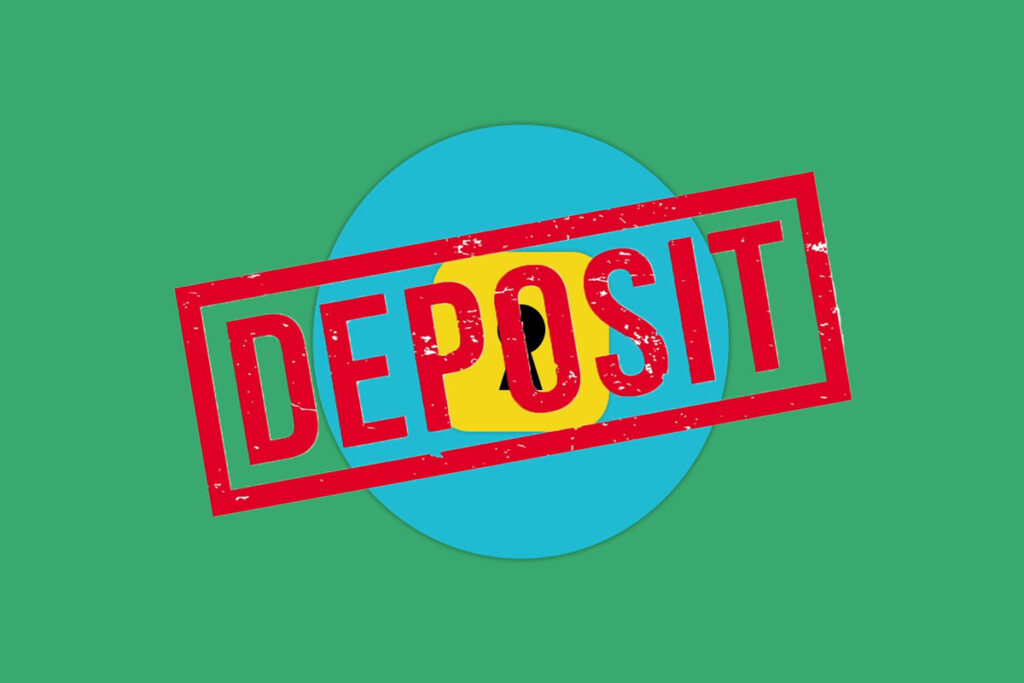
There’s a lot to think about when finding a property to rent, and deposits are certainly one of them. There are different types of deposits to consider. In this blog, we’re letting you know all you need to know about holding deposits.
Many tenants find rental fees and expenses confusing, and we can understand why. We’re here to help you understand the terms of the tenancy agreement and tenancy deposits.
What is a holding deposit?
A holding deposit is a way of securing a property before you move into it. Usually, prospective renters will visit a property with a landlord or agent and then ask to move in. Read our blog on what to look for when viewing a rental property.
After viewing the property and requesting to live there, the letting agents will need to perform prospective tenant checks. These checks will involve assessing your right to rent and making sure that you can afford to pay the monthly rent. Read our blog on: what are rental checks?
When are holding deposits taken?
Holding deposits are usually taken before you move into a property. It essentially acts as a security for the property. However, once a holding deposit has been taken, it does not mean that you are moving into the property. You will be required to meet all of the rental checks before moving in to the property. After the checks are complete, you will usually get a move in date.
How much is a holding deposit?
A holding deposit is different to a damage deposit. A damage deposit is a larger sum of money that is taken as a security by the landlord. If damage is found by the landlord, they will use the money from the damage deposit to fix the issue.
A damage deposit tends to be around the cost of one month’s rent. This can of course be tricky for renters, but it is a relatively small deposit compared to the high upfront costs when buying a property. Your tenancy agreement should outline the details of your tenancy deposit. You will usually pay the tenancy deposit when you pay the first month’s rent.
This tenancy deposit cannot exceed five week’s rent. This is a result of the Tenant Fees Act. The Tenant Fees Act banned landlords from charging more than five weeks rent in advance as a deposit.
A holding deposit is a lower amount of money. It cannot actually be more than one week’s rent, so make sure that you are aware of how much you are paying and the limit that you can be asked for. Once you’ve paid the holding deposit, it does not mean that you are definitely moving into the property.
It’s also worth noting that renters can only be charged one holding deposit. This means that if you are renting with others, you will only pay the amount together, you will not need to all pay the holding deposit separately.
If the tenancy goes ahead, damage deposits work in the same way in that you only need to pay it once. Usually, when people are sharing a home, they will split the damage deposit equally between them all.
- Damage deposit: cannot exceed 5 week’s rent
- Holding deposit: cannot exceed one week’s rent
Will I get my holding deposit back?
Yes, in most circumstances you will get your holding deposit back. In some cases, the landlord or agent may agree to keep the holding deposit and take the amount you’ve paid off the amount of damage deposit you owe.
Of course, at the end of the tenancy, you should be given your damage deposit back. However, you will only get the deposit back if you have not caused any damage to the property. This will usually exclude wear and tear.
Any other potential damage or losses will be outlined in your tenancy agreement e.g replacing lost keys.
When renting, landlords must ensure that your money is protected under one of the many approved deposit protection schemes. Government approved deposit protection schemes help to ensure you get your money back at the end of the tenancy.
What happens if the tenancy does not go ahead?
There are various reasons why the tenancy may not go ahead. Either yourself or the landlord could pull out of the property deal.
When you are asked to pay the holding fee, you should ask for the terms and conditions in writing. This should outline what will happen to your deposit if you do not end up renting the property. If the tenancy doesn’t go ahead, you should still get your deposit back in most cases.
We hope this blog has been useful regarding holding deposits. Are you looking for somewhere to call home? We have rental properties available in Manchester, Sheffield and Lytham St Annes. Contact us today for help finding your next home.




